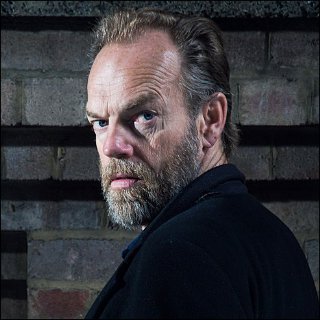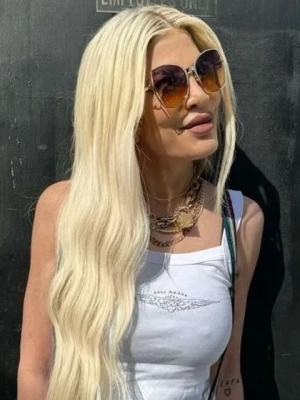 Hugely successful but keeping it low was what the good-natured Hugo Weaving applying in his career philosophy. The Australian actor didn't simply come up that way but the lesson that he learnt since childhood had made him genuinely refined and poised. Being born to the couple Wallace Weaving and Anne Weaving on April 4, 1960 in Nigeria, West Africa had made him appreciate the virtue of thrift and solidarity while his stay with his family in Great Britain and Australia had provided him good education. The sign of his ingenuity was first visible in his teen when he attended Queen Elizabeth's Hospital School in Bristol which was in fact one of the best academic schools in Britain. When most of the pupils there graduated with flying colors, Weaving did so by scoring distinctive As in his theater and history 'O-level'. The admiring effort didn't stop there as he felt the need of more knowledge and decidedly entered Sydney's Knox Grammar School. As his interest in theatrical production was bubbling, he beat hundreds of applicants to enroll in the famous National Institute of Dramatic Art, Kensington, Australia. Graduated in 1981 with excellent grades he confidently taking a step at a time to walk through the path to Hollywood.
Hugely successful but keeping it low was what the good-natured Hugo Weaving applying in his career philosophy. The Australian actor didn't simply come up that way but the lesson that he learnt since childhood had made him genuinely refined and poised. Being born to the couple Wallace Weaving and Anne Weaving on April 4, 1960 in Nigeria, West Africa had made him appreciate the virtue of thrift and solidarity while his stay with his family in Great Britain and Australia had provided him good education. The sign of his ingenuity was first visible in his teen when he attended Queen Elizabeth's Hospital School in Bristol which was in fact one of the best academic schools in Britain. When most of the pupils there graduated with flying colors, Weaving did so by scoring distinctive As in his theater and history 'O-level'. The admiring effort didn't stop there as he felt the need of more knowledge and decidedly entered Sydney's Knox Grammar School. As his interest in theatrical production was bubbling, he beat hundreds of applicants to enroll in the famous National Institute of Dramatic Art, Kensington, Australia. Graduated in 1981 with excellent grades he confidently taking a step at a time to walk through the path to Hollywood.
Staying true to his country first, the blue-eyed actor appeared in an Australian production that portrayed the life of Australia's natives, the Aborigines. Although having low quality of picture due to the minimum budget, the movie "The City's Edge" (1983) was considered brave because it was indeed the first movie that clearly pictured the plight of the Aborigines under the Western force. Portraying a young white boy named Andy White, Weaving had imprinted a good starter kick enough to deliver him to the next enrollment in "For Love Alone" (1986), an urban romance taking set in the 1930s Australia. Then working under several other Australian productions like "Melba" (1987) and "The Right Hand Man" (1987), he tried his luck joining ABC for TV movie "Dadah Is Death" (1988) where he played opposite Sarah Jessica Parker. After that he was involved in an Australian mini series titled "Bangkok Hilton" (1989) which was claimed to be the best Australian production ever. In the series, he would be the lawyer of the main character, Katrina Stanton which was played by fellow rising Australian actress, Nicole Kidman. No matter how pleasant it felt to add such a good movie record to his list, he was most happy about the birth of his first child with partner Katrina Greenwood whom he has been together with since 1984. The baby boy who was born in 1989 was named Harry and later on the couple would have a daughter named Holly in 1993.
As Weaving involved himself in several other films, his acting performance was getting thicker as shown in "Proof" (1991). Blind and a photographer was hard enough to imagine nevertheless Weaving brilliantly depicted a dependant person who refused to trust anybody but to proof himself that everything was just like what he captured in the photos. For the astonishing performance, he was named Best Actor in a Lead Role by the Australian Film Institute in 1991, an award event which was quite similar to Academy Awards in U.S. The next stop for Weaving was in "Reckless Kelly" (1993), a modern version of the Australian folk hero, Ned Kelly and later that year he acted under the direction of the Australian director Stephan Elliott in a semi comedy but mostly thriller "Frauds" which surprisingly included British singer Phil Collins as the main character. However, it was only Weaving who was reassigned by Elliott to play in his scandalous movie "The Adventures of Priscilla, Queen of the Desert" (1994). After that taking a complete turn from drama or serious roles, he was unbelievably a drag queen who was Anthony Belrose as a guy but sassily named Mitzi Del Bra as a pretty dancer. Again he was included as one of the nominees of the 1994 AFI for Best Actor in a Lead Role but unfortunately stayed at being nominated this time. Then, filling in the voice of an old sheep dog and the narrator of a real life adventure in "Babe" (1995) and "Wild Australia: The Edge" (1996) respectively, it looked like he was trying to do some new things other than the usual roles.
Owing to his character in "The Interview" (1998) as the interviewee of a murder suspect which eventually earned him the second AFI for Best Performance by an Actor in a Leading Role in 1998, he ought to be thankful as it also brought him a larger contract to star in the blockbuster "The Matrix" (1999). As Agent Smith, the virtual enemy of Neo in the matrix system, he was simply a convincing villain and because of that the philosophical film immediately raised his fame meter to the level of Hollywood's prominent actor. As expected, unlike many other actors who suddenly gained instant success, he remained true to his nature by not involving himself in the high lifestyle or even boasting himself. "I guess I judge my films by how pleased I am with the work I do, so it's kind of on another level. If they do well at the box office, then that's great. Then I'm really pleased about that too." Speaking about pleased with his work, he must have felt the same way when the sequel of "The Matrix" was made under the title "The Matrix Reloaded" in 2003 and also the end of the trilogy "The Matrix Revolutions" (2003) in which it also ended his life. Meanwhile, amid the year 1999 to 2003 a much bigger hit came up and awed movie fans for its high resolution and magnificent animation effects. It was none other than the mega blockbuster fantasy "The Lord of the Rings: The Fellowship of the Ring" (2001). Taking as many as 4 winnings and 9 nominations at the 2002 Academy Awards, the movie was hailed as the greatest fantasy flick. And because it was taken from J.R.R. Tolkien's trilogy books, the second and final battle to seize the ring were completed under the titles "The Lord of the Rings: The Two Towers"(2002) and "The Lord of the Rings: The Return of The King" (2003). Different from his role in "The Matrix" trilogy that took the sides of the evil, Weaving as Elrond was the king of elves who helped to destroy the cursed ring. Sharing with the other cast of the trilogy, he brought home a SAG Award for Outstanding Performance by a Cast in a Motion Picture in 2004. Working with such incredible people was probably the greatest gift that he treasured "I generally find an affinity with a lot of the people I play."
Towards the end of the 2003, he didn't know when the huge wave was going to come back, so he joined smaller but equally notable films in the following years such as "Peaches" (2004), "Everything Goes" (2004) and "Little Fish" (2005). To prove that he still hadn't lose the spark, in the latter movie Weaving displayed a great act as a junkie and for the third time, the category of Best Lead Actor of the 2005 AFI went straight into his pocket. Surprisingly, in the middle of the world being terrorized by unknown opposed groups, Weaving agreed to play in a bold movie telling the story of a freedom fighter who would use terrorist acts to fight against the government in "V for Vendetta" (2005). Next back to stand in front of the microphone to voice both Noah the Elder in "Happy Feet" (2006) as well as Megatron in "Transformers" (2007), the versatile thespian smoothly kept moving forward to take roles in "The Key Man" (2007) and "The Tender Hook" (2008), the latter being an indie drama mystery about a young woman's rise to the apex of a love/power triangle in the world of boxing.








